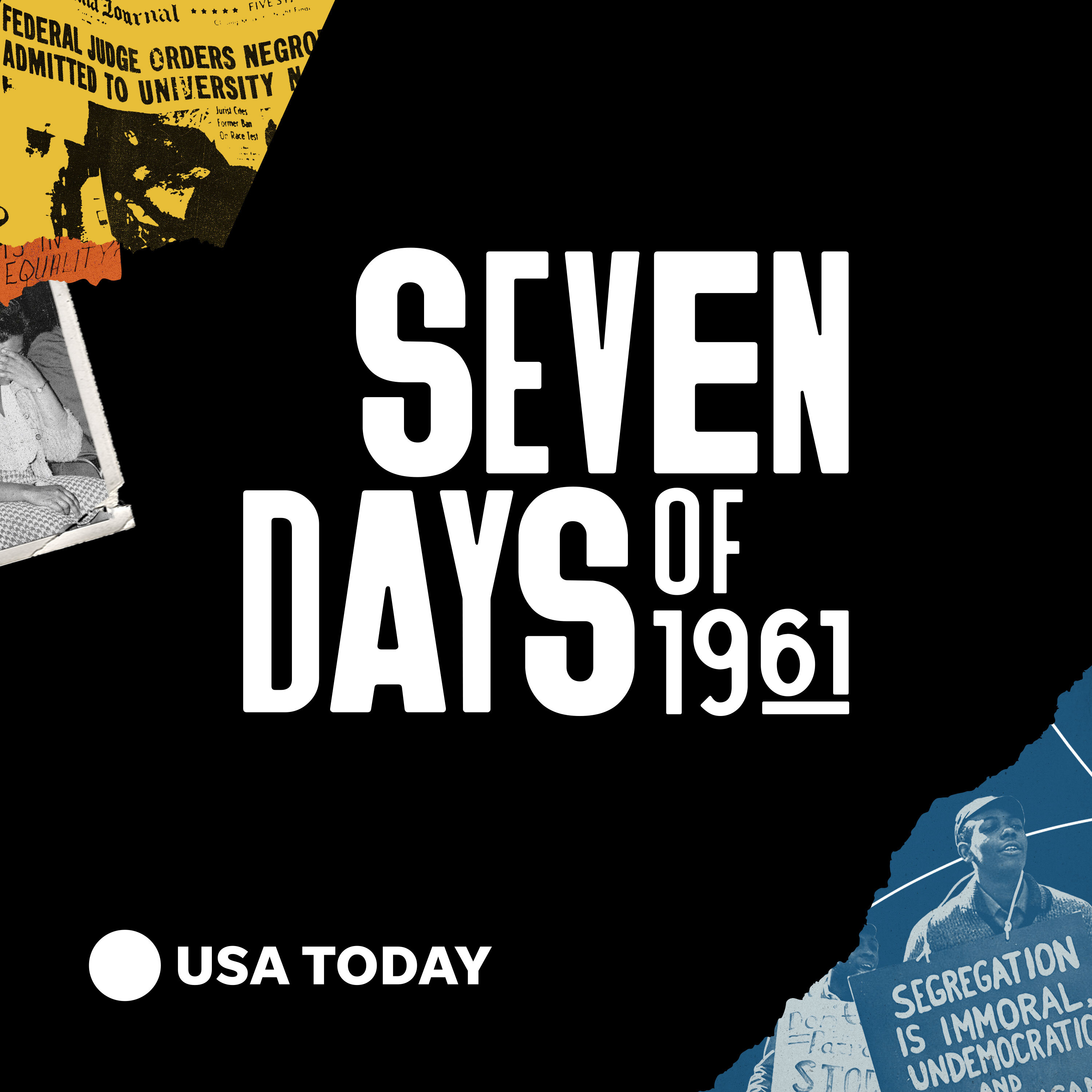They wanted to integrate their South Carolina town in 1961. The college students were sentenced to a chain gang.
Description
David Williamson Jr. sat in the same seat where he was arrested sixty years ago, to tell us his experience of the day he and nine other men sat at a “whites-only” lunch counter. After being convicted for trespassing, nine of the men chose 30 days of hard labor on a chain gang instead of paying the $100 bail bond. The “jail, no bail” movement pushed back against paying fines for fighting segregation. It became a vital tactic of the Civil Rights movement.
Episode Transcript available here.
Read more about this moment and the impact it left in this story written by Wenei Philimon.
The “Seven Days of 1961” podcast features stories of resistance, told by the people who lived it and made history that year. Learn more about the heroic civil rights activists and the danger they faced at sevendaysof1961.usatoday.com.
More Episodes
In 1961, Black college students fought segregation. Four years later, their Supreme Court case secured First Amendment rights for future protesters.
Sylvia Copper was a freshman at Southern University when she was suspended for her participation in the historic protest. She knew the risks...
Published 12/07/21
Published 12/07/21
On Nov. 11, 1961, hundreds of Black and white college students from across the Northeast flocked to Baltimore and Annapolis to conduct sit-ins, aiming to draw attention to segregated restaurants along one of the nation’s most popular travel routes. Frustrated by what they saw as a tepid federal...
Published 11/30/21


